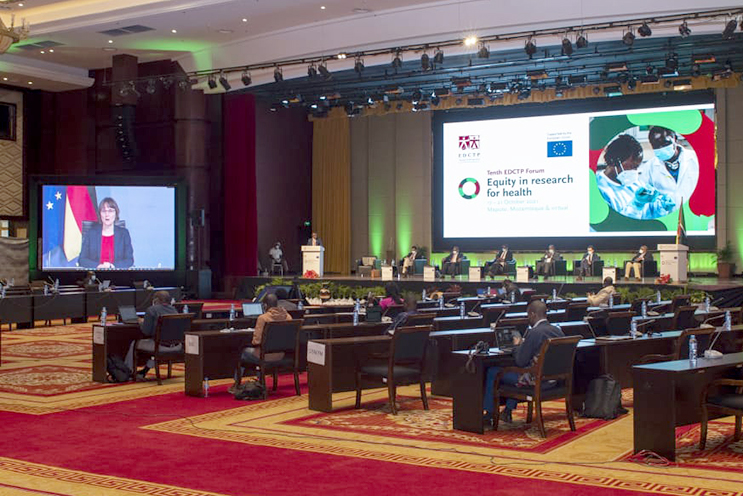By Paul Chinnock
EDCTP is once again facing new challenges. First it is on the verge of a new programme. From January next year, new proposals will be considered by EDCTP3. This requires important actions from all stakeholders. Stock taking is required in which we must define past successes and failures. Countries must renew their commitment, politically and financially. A strategy must be developed that is fit for the future. This process is in full swing! Ms Spelberg encouraged everyone to help shape the new programme.
The second challenge will be the changes in global health architecture that are taking place in response to the COVID-19 pandemic. Unlike previous wake-up calls, COVID-19 is one we cannot ignore. We must improve awareness and cooperation. New structures are already being created such as the Access to COVID-19 Tools Accelerator (ACT-A) and the European Health Response Agency (HERA). Inclusive approaches, such as One Health, will become more important
Some of these approaches have already been adopted by EDCTP. Perhaps EDCTP could serve as a blueprint for other collaborative international initiatives? The EDCTP community has lived up to many important pre-requisites for successful cooperation.
Global health research cooperation needs competence to bring life to a top-down approach, to establish what it takes for sustainable success, and to translate experience into action.
Establishing EDCTP’s Regional Networks of Excellence has not been easy! But the efforts have ultimately paid off – regional collaboration on COVID-19 has demonstrated this.
We should not try to re-invent the wheel and we must communicate the success of EDCTP to political leaders.
Ms Spelberg assured her listeners that Germany remains committed to EDCTP. She hopes that many other partners will join and commit to EDCTP3 – and become part of a success story!
Asked by Dr Saúte what she considered the most important feature of EDCTP, Ms Spelberg said that there were many such features. However, it was probably the fact that it has established an equal partnership. She was confident that EDCTP3 would be ‘even more equal … everyone will be able to play a part’. Her advice to African health research institutions was simply, ‘Join us!’

